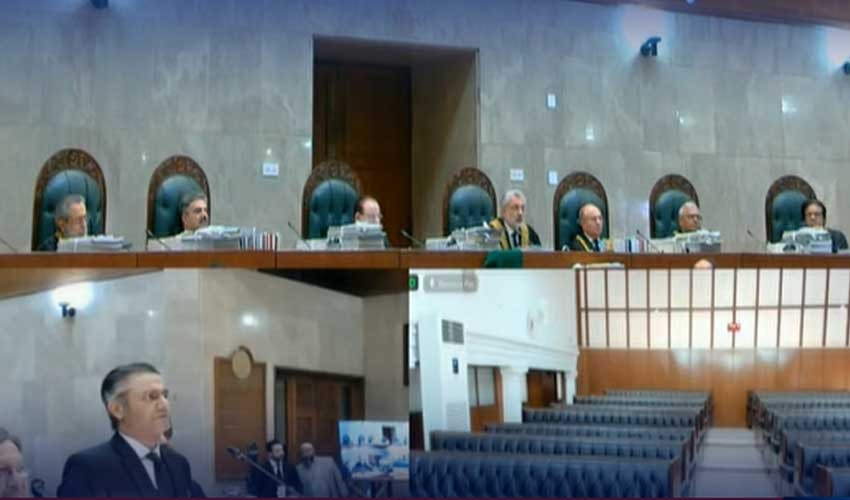ISLAMABAD- The Supreme Court on Tuesday started hearing a reference filed against the sentencing and hanging of Zulfikar Ali Bhutto, the founding chairman of the Pakistan People’s Party (PPP) and the country’s first democratically-elected Prime Minister.
The Apex Court, led by Chief Justice Faez Isa, now takes up the matter more than 44 years after Bhutto’s execution and over 12 years since the reference was filed. The last hearing took place on November 11, 2012, by an 11-member bench headed by then-Chief Justice Iftikhar Muhammad Chaudhry.
PPP Chairman Bilawal Bhutto Zardari, as the hearing commenced, submitted an application to join the proceedings as a party, with PPP leader and senior lawyer Farooq H Naek representing him.
Chief Justice Isa said that Bilawal could be heard both as an heir and as a representative of the political party. The Chief Justice expressed regret that the case wasn’t scheduled for an earlier hearing, recognizing the historical significance of the event unfolding and its potential far-reaching consequences at judicial, social, and political levels.
Simultaneously, the counsel for Ahmed Raza Kasuri, whose application led to Bhutto’s hanging, requested the court’s permission to present his arguments.
In response, the Chief Justice directed Attorney General Mansoor Awan to read out the reference, addressing queries from the judges during the process.
Background on the Reference:
The reference was initiated on April 2, 2011, by then-President Asif Ali Zardari, under Article 186 of the Constitution. The purpose was to seek the court’s opinion on revisiting the trial that resulted in Bhutto’s hanging on April 4, 1979.
Bhutto’s removal followed a military coup in 1977, led by then-Army Chief Ziaul Haq, after months of agitation and disputed election results.
The Supreme Court announced that the hearing would be telecast live on its website, marking the second such instance in Pakistan’s judicial history. This move follows a petition filed by Bilawal Bhutto Zardari.
Bhutto’s arrest and subsequent conviction in 1978 by the Lahore High Court (LHC) for conspiring to murder a political opponent have been controversial. The case, fraught with procedural flaws, has never served as a precedent in subsequent Pakistani legal proceedings.
PPP leader Sherry Rehman, outside the Supreme Court, emphasized the historic nature of the day, referring to Bhutto’s execution as a “judicial murder.” She expressed hope that justice would finally prevail.










